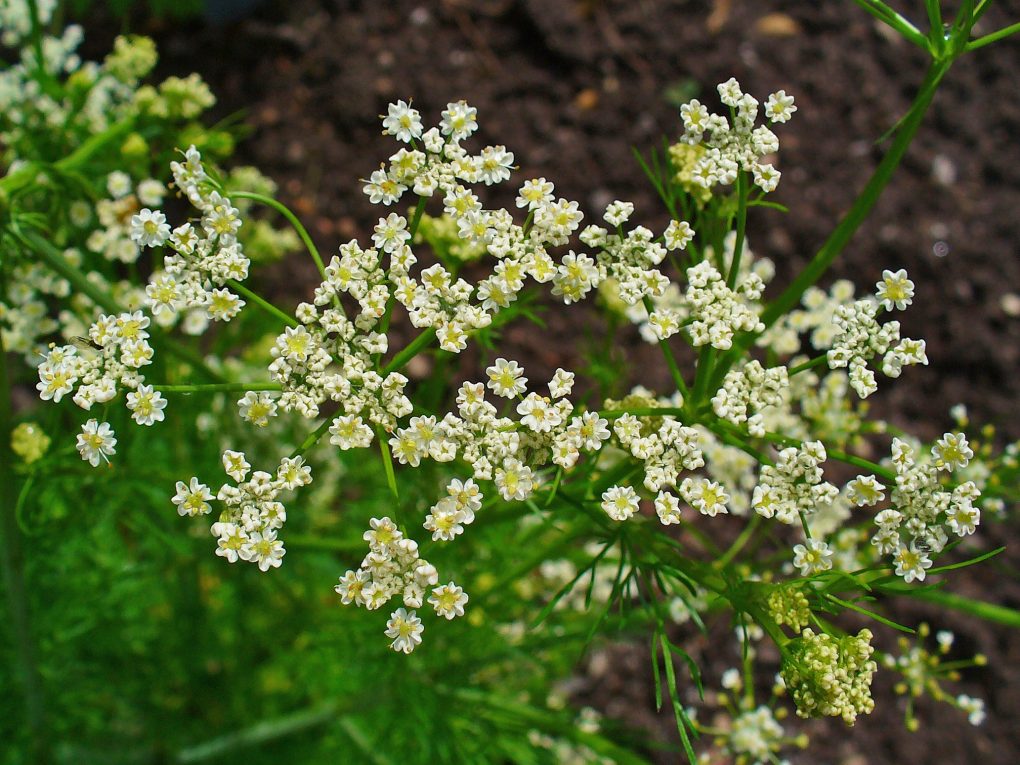
CUMIN
Here’s another part of the herbs and spices series. Cumin is this part’s main character. It’s a herb that was already known in Palaeolithic.
It is both grown at a global scale and it grows in the wild. It isn’t really suprising as cumin is a valued spice that can be found many medicaments.
It is mostly used with cabbage as it eases the digestive problems. It is also a good idea to add it to onion if you have problems digesting it. You can find some information from books by Aleksander Ozarowski and Henryk Rozanski (Polish phytotherapits and pharmacists) below.
Ripe cumin fruits are harvested, then dried and used for medical reasons. On plantations ripe plants are cut, dried, ground and then the fruits are weeded out. The cumin fruit – Fructus Carvi – is the most important part. The fruits are often mistaken for seeds. Oleum Carvi – cumin oil – is made by distillating the fruits with steam. Then, the main element – carvone – is received from cumin oil.
The fruits contain 8.2% of an essential oil. The essential oil contains up to 75% of carvone and some limonene and other minerals. Furthermore, fruits contain up to 22% of oil, up to 25% of protein compounds and carbohydrates, flavonoids, organic acids, coumarin compounds, mineral salts and other.
Cumin helps with any stomach irritation, restores normal motility, slightly boosts the production of digestive juices, facilitates the absorption of nutrients in given food and it provides from flatulence, especially young children and teenagers. What is more it is mildly diuretic, thanks to flavonoids and other ingredients of the essential oil. An extract of cumin fruits also enhances lactation and indirectly improves the work toddlers’ digestion systems.
When to use it. Kids and teenagers – any digestive problems, middle-aged and older people – flatulence, stomach ache, apetite loss, intestinal atony and irregular motions, insufficient digestive juices production, excessive fermentation. Also for lactation enhancement.
Carminative herbs with cumin: mix cumin fruits with fennel/anise fruits, peppermint leaves, thyme and camomile flowers in equal proportions. Then take one spoon of the mix and add one glass of hot water, then cover for 15 minutes to steam. Let it rest for another 15 minutes and then strain. Drink half a glass, 2 times a day, after eating.
Cumin wine: take 3 spoons of the herb mix and add a bottle of white, dry wine. Let it rest for 2 weeks, but remember about shaking it often. Strain and drink a small glass, 2-3 times a day after eating. Recommended for adults having digestive disorders and flatulence.
Digestive herbs with cumin: mix 50g of cumin fruits with 25g of fennel fruits, milfoil fruits, benedictine thistle, fruits and licorice. Take half a glass of herbs and add 2 glasses of hot water. Cover and let it rest for an hour. Drink 1/2 – 2/3 a glass, 30 minutes before every meal.
Cumin herbs for vegetative neurosis: mix 50g of cumin fruits, valerian and St. John’s wort with 25g of benedictine thistle flowers, buckbean and melissa leaves. Take two spoons of the mix and add two and a half glasses of water. Cover and let i rest for an hour. Drink 2/3 of a glass, 3 times a day in between meals.
Cumin syrup for children: carefully blend 1 spoon of cumin fruits in a glass of hot water, leave it covered for 20-30 minutes and then strain the mixture. Add some sugar or honey. Take a teaspoon a few times a day after eating.
A Scabies’ fighter: dissolve 10g of cumin oil and 5g of thyme oil in 15g of 95% alcohol. Mix it with vegetable oil. Use it on skin (people and animals) as an antidote for scabies. Keep it in the fridge.
And this is what Witold Poprzecki (another Polish phytotherapist) says about cumin:
Cumin works very well for digestive system, reduces excessive fermentation thus eliminating flatulence, it also boosts the heart and nerves, works diureticly and lactogenicly. We like to add it to cheese, meat sauces, cabbage stew and everything that’s made from cabbage, but also to wholemeal bread. People having flatulence should always have cumin and marjoram on them so they can take a spoon anytime they need it.










Comments No Comments
Join the discussion…